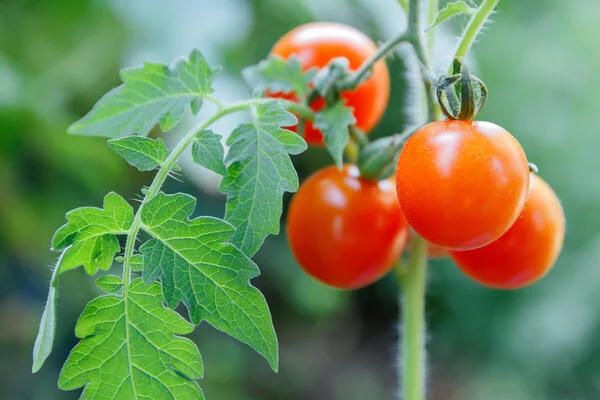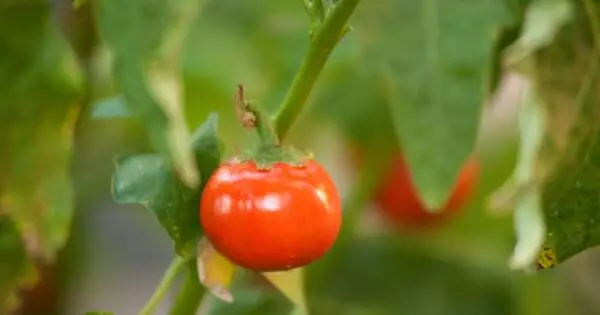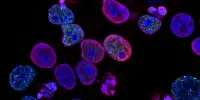Fruit production in plants is often sensitive to drought stress, as drought can reduce plant growth and fertility. There is ongoing research into identifying genes that can help fruiting plants adapt to drought conditions. Some examples of genes that have been studied for their potential role in drought tolerance in fruiting plants include:
- Drought-induced transcription factors: These genes regulate the expression of other genes in response to drought stress.
- Stress-responsive transcription factors: These genes help regulate the plant’s response to various forms of stress, including drought.
- Dehydrin genes: These genes encode proteins that help protect plant cells from damage due to water loss.
- Aquaporin genes: These genes encode proteins that help facilitate the movement of water through the plant.
- Late embryogenesis abundant (LEA) genes: These genes encode proteins that help protect plant cells from damage due to dehydration.
It is important to note that the identification and characterization of these genes is an active area of research, and our understanding of their precise role in drought tolerance is still evolving.
Researchers conducted the first spatiotemporal study of the effects of prolonged water stress on tomato fruits, identifying genes that could aid plant breeders in developing drought-tolerant fruit crops. As climate change is expected to cause more frequent droughts, scientists are working hard to make discoveries that will aid plants in adapting to prolonged water stress.
We identified a number of genes that are involved in water stress response in the tomato fruit. We can now begin to select candidate genes that could help breeders develop fruit that can adapt to drought conditions, and not just tomatoes but also grapes, apples, and fleshy fruit in general. That is a long-term potential application of these data.
Catalá
The Boyce Thompson Institute and Cornell University researchers completed the first study to provide a comprehensive picture of gene expression changes in response to water stress in fruit — the tomato, Solanum lycopersicum — identifying genes that could help plant breeders develop drought-tolerant fruit.
The study was led by Carmen Catalá, an assistant professor at BTI and a Senior Research Associate in Cornell’s School of Integrative Plant Science (SIPS). It was published in the December issue of Plant Physiology. Jocelyn Rose, a professor in SIPS, and BTI professors Jim Giovannoni, Zhangjun Fei, and Lukas Mueller, who are also adjunct professors in SIPS, are among the collaborators.
“We identified a number of genes that are involved in water stress response in the tomato fruit,” said Catalá. “We can now begin to select candidate genes that could help breeders develop fruit that can adapt to drought conditions, and not just tomatoes but also grapes, apples, and fleshy fruit in general. That is a long-term potential application of these data.”
The researchers looked at gene expression in tomato leaves and six fruit organs (pericarp, placenta, septum, columella, jelly, and seeds) at two different time points (growing and ripe fruit) and under four different water stress conditions (none, mild, intermediate and strong).

The researchers found that each of the fruit organ tissues changed in unique ways over time.
“Less than 1% of the expressed genes that were affected by water stress were shared among all six fruit tissues, and more than 50% of the affected genes were specific to a single tissue,” said Catala.
In contrast to the negative effects of drought, which triggers physiological disorders and fruit loss, there are some positive effects associated with drought — at least with mild drought. For example, the researchers found that water stress increases the amount of lycopene in ripe fruit. Lycopene is an antioxidant that has documented health benefits. Water-stressed fruit also had higher levels of starch biosynthesis, which could yield sweeter tomatoes.
The researchers also found that they could “train” tomatoes to be more resistant to future water droughts.
“When we sowed the seeds from treated plants, we found that the seedlings from stressed tomatoes showed improved recovery from water stress in comparison to seedlings from control tomatoes,” said Philippe Nicolas, a postdoctoral scientist in Catalá’s lab and first author on the paper.
Nicolas said they identified several genes whose expression is induced by water stress in mature seeds, which could play important roles in conferring water stress tolerance to the next generation of plants. The study was challenging in a few ways because the researchers were looking at the fruit. Most studies of plant responses to drought stress examine seedling roots and leaves because they are relatively easy to study.
“It is relatively easy to stress seedlings, but if you stress plants too much then they won’t flower and develop fruit,” Catalá said. “Plus, when you want to study fruit, you must grow adult plants, which takes more time, room, and overall resources.”
















